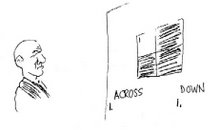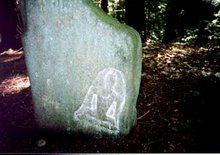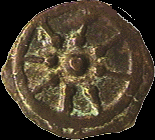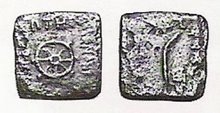Monday, September 3, 2018
One Nation, under dog...
The Christian Right is trying to rewrite the history of the United States, as part of their campaign to force their religion on others. According to the fruitcakes, the Founding Fathers of this country were Christians who wanted the United States to be a Christian nation.
Not true! The early presidents and patriots were generally Deists or Unitarians, believing in an impersonal Providence but rejecting the divinity of Jesus and the Old and New Testaments alike.
Thomas Paine: "I do not believe in the creed professed by the Jewish church, by the Roman church, by the Greek church, by the Turkish church, by the Protestant church, nor by any church that I know of . . . Each of those churches accuse the other of unbelief; and for my own part, I disbelieve them all." [1]
George Washington, first president: referred to Providence as an impersonal force, remote and abstract, he never declared himself to be a Christian in any of his correspondence. Washington championed freedom from religious intolerance. When John Murray (a Universalist who denied the existence of Hell) was invited to become an army chaplain, the other chaplains petitioned Washington for his dismissal. Instead, Washington gave him the appointment. Washington’s last words lacked any religious nature and he did not call for any clergyman to be in attendance. [2]
John Adams, second president: wrote that he found among the lawyers "a noble air and gallant achievements" but among the clergy, the "pretended sanctity of some absolute dunces." [3] Late in life, he wrote, "As I understand the Christian religion, it was, and is, a revelation. But how has it happened that millions of fables, tales, and legends have been blended… that have made them the most bloody religion that ever existed?" [4]
During Adams' presidency, the Senate ratified the Treaty of Peace and Friendship, which states in Article XI that "the Government of the United States of America is not in any sense founded on the Christian religion." This treaty with Tripoli was written by Joel Barlow during Washington's administration. [2]
Thomas Jefferson, third president and author of the Declaration of Independence: "I trust that there is not a young man now living in the United States who will not die an Unitarian." [5] He referred to the Revelation of St. John as "the ravings of a maniac" [6] and wrote, "The Christian priesthood, finding the doctrines of Christ… in the mysticisms of Plato… The doctrines which flowed from the lips of Jesus himself are within the comprehension of a child; but thousands of volumes have not yet explained the Platonisms engrafted on them: and for this obvious reason that nonsense can never be explained." [7]
James Madison, fourth president: Madison was not religious in any conventional sense. "Religious bondage shackles and debilitates the mind and unfits it for every noble enterprise." [8] "During almost fifteen centuries has the legal establishment of Christianity been on trial. What have been its fruits? More or less in all places, pride and indolence in the Clergy, ignorance and servility in the laity; in both, superstition, bigotry and persecution." [9]
Ethan Allen, whose capture of Fort Ticonderoga helped inspire Congress and the country to pursue the War of Independence: "That Jesus Christ was not God is evident from his own words." In the same book, Allen noted that he was generally "denominated a Deist, the reality of which I never disputed, being conscious I am no Christian." [10] When Allen married Fanny Buchanan, he stopped his own wedding ceremony when the Judge asked him if he promised "to live with Fanny Buchanan agreeable to the laws of God." Allen refused to answer until the Judge agreed that the God referred to was the God of Nature, and the laws those "written in the great book of Nature." [11]
Benjamin Franklin: "As to Jesus of Nazareth, my Opinion of whom you particularly desire, I think the System of Morals and his Religion . . . has received various corrupting Changes, and I have, with most of the present Dissenters in England, some Doubts as to his Divinity; tho' it is a question I do not dogmatize upon, having never studied it, and think it needless to busy myself with it now, when I expect soon an Opportunity of knowing the Truth with less Trouble." [12]
________________________________________
Footnotes
1. The Age of Reason by Thomas Paine, p. 8, 9 (republished 1984, Prometheus Books, Buffalo NY)
2. George Washington and Religion by Paul F. Boller Jr., p. 16, 87, 88, 108, 113, 121, 127 (1963, Southern Methodist University Press, Dallas TX)
3. The Character of John Adams by Peter Shaw, p. 17 (1976, North Carolina Press, Chapel Hill NC) quoting letter by J.A. to Charles Cushing Oct. 19, 1756
4. The Great Quotations, ed. by George Seldes, (Citadel Press) quoting letter by J.A. to F.A. Van der Kamp Dec. 27, 1816
5. Thomas Jefferson, Passionate Pilgrim by Alf Mapp Jr., p. 311 (1991, Madison Books, Lanham MD) quoting letter by T.J. to Dr. Benjamin Waterhouse June 26, 1811
6. Thomas Jefferson, An Intimate History by Fawn M. Brodie, p. 453 (1974, W. W. Norton & Co. Inc., New York NY) quoting letter by T.J. to Alexander Smyth Jan. 17, 1825
7. Thomas Jefferson, Passionate Pilgrim by Alf Mapp Jr., p. 246, quoting letter by T.J. to John Adams July 5, 1814
8. The Madisons by Virginia Moore, p. 43 (1979, McGraw-Hill Co., New York NY) quoting letter by J.M. to William Bradford April 1, 1774
9. James Madison, A Biography in His Own Words, p. 93 quoting Memorial and Remonstrance against Religious Assessments by J.M. June 1785.
10. Religion of the American Enlightenment by G. Adolf Koch, p. 40 (1968, Thomas Crowell Co., New York NY) quoting preface and p. 352 of Reason, the Only Oracle of Man by Ethan Allen 1784
11. Sense of History compiled by American Heritage Press Inc., p. 103 (1985, American Heritage Press Inc., New York NY)
12. Benjamin Franklin, A Biography in His Own Words, edited by Thomas Fleming, p. 404 (1972, Newsweek, New York NY) quoting letter by B.F. to Ezra Stiles March 9, 1790
Subscribe to:
Post Comments (Atom)



















No comments:
Post a Comment